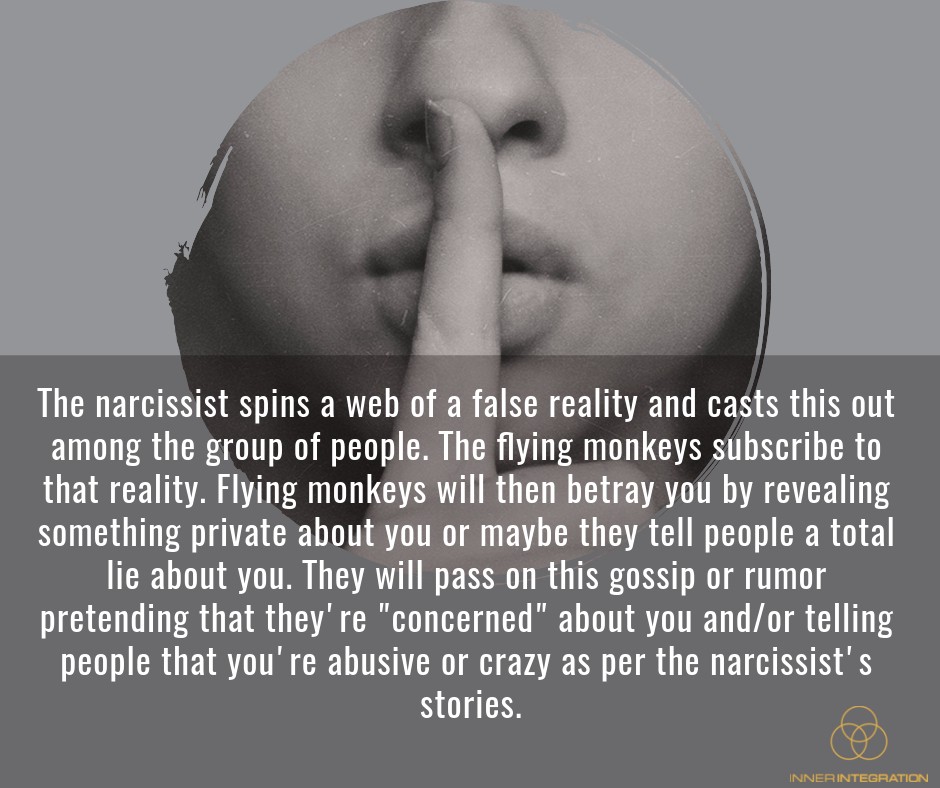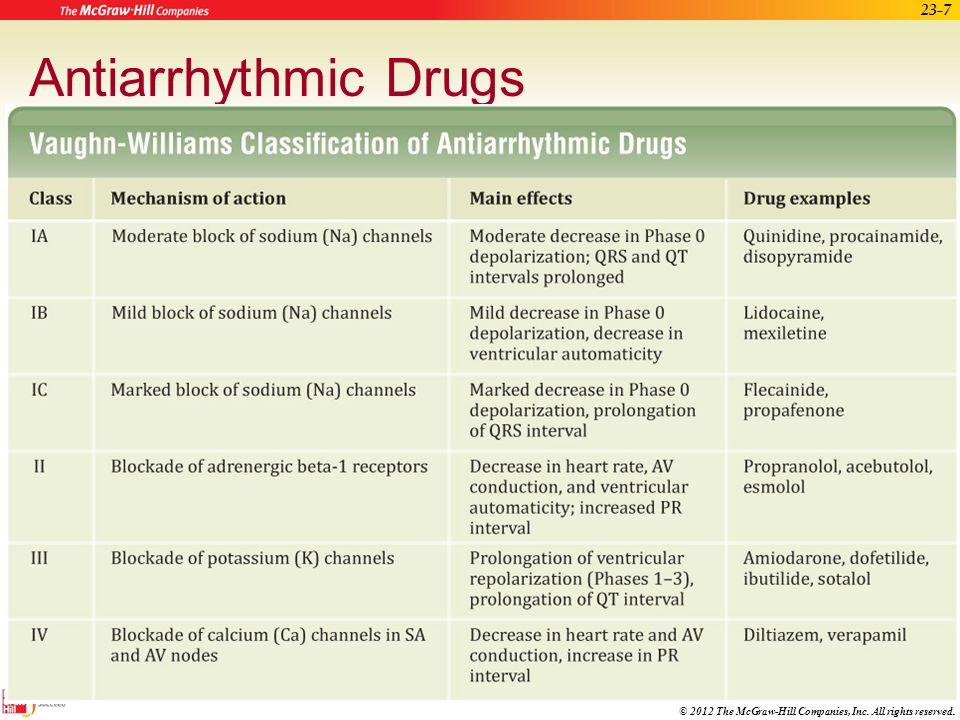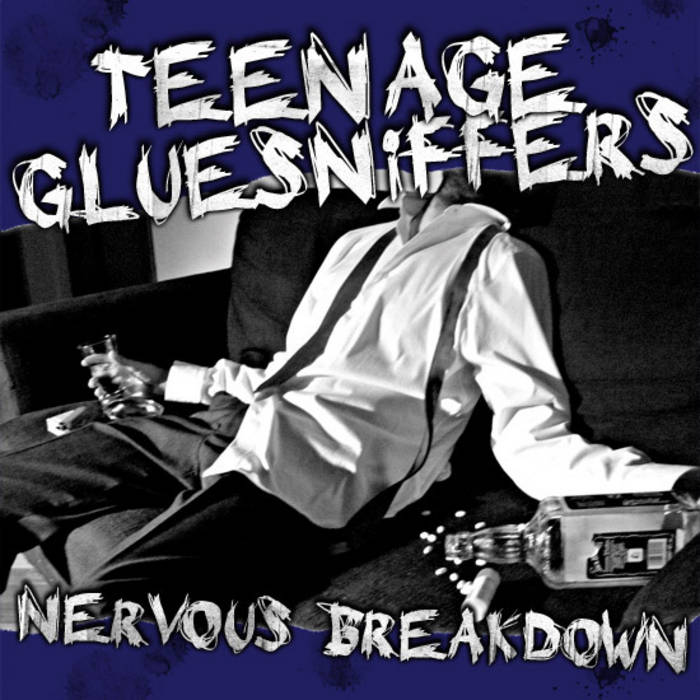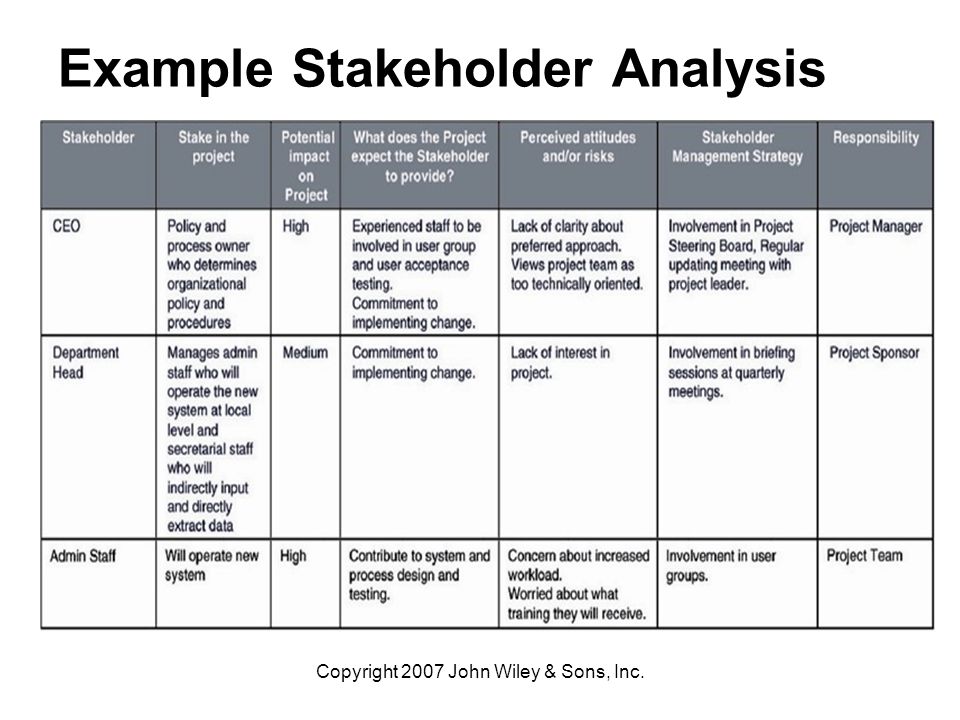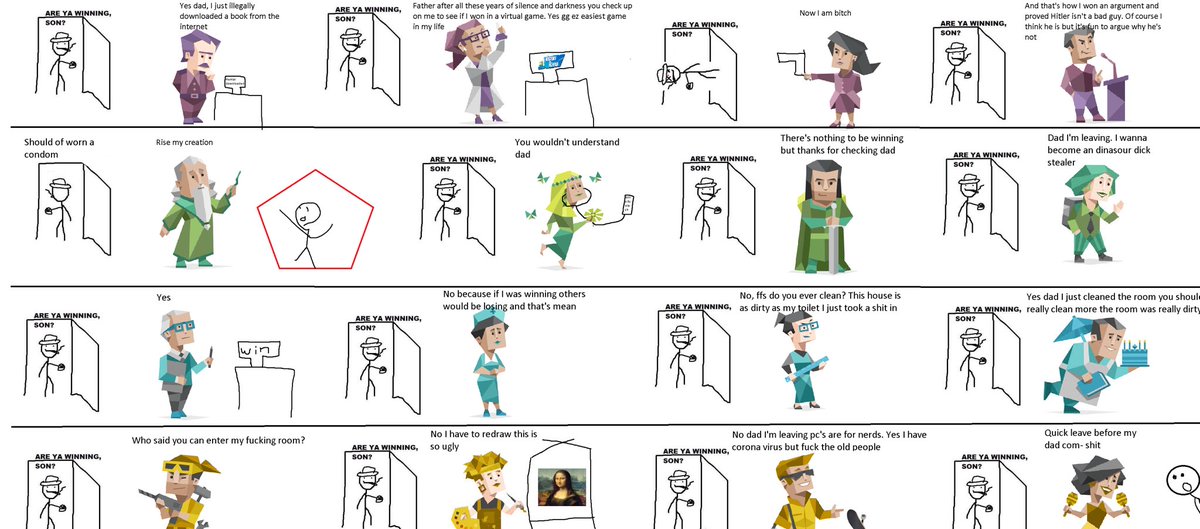Narcissists and ghosting
The differences – Narc Wise
6 minute read
Is the narcissist suggesting that you are narcissistic because of your decision to go No Contact? Are you in a dither wondering if perhaps there is something to this? After all, what’s the difference between going No Contact, the silent treatment and ghosting?
This constant self-questioning is yet one more outcome of having suffered narcissistic abuse. You have very deliberately been programmed by the narcissist to doubt yourself at every turn.
Particularly when it comes to worrying that you are the narcissist, rather than the victim of one (check out How you know you’re not the Narcissist for more detail on dispelling any fears on this front).
Going No Contact offers the narcissist a golden opportunity to exacerbate your fretting over this specific concern.
Inevitably when you make the decision to go No Contact, the narcissist will launch a smear campaign. Entirely false yet irksome information eventually makes its way to as a result (for more on this read Narcissist’s and smear campaigns: Why they do it).
The act of going No Contact (especially within the context of removing yourself from dysfunctional narcissistic family systems), is perfect because it offers fodder for their campaign. It is seized as ‘solid evidence’ that you are one sick puppy, truly narcissistic!
Their “logic” goes like this: The silent treatment is a form of emotional abuse used by narcissists. No Contact is silent. Ergo, you are an abusive narcissist. And of course, they are the poor, long suffering victim.
Ummm…no.
Unsurprisingly, and completely intentionally on the part of the narcissist, this triggers your fears, causing you further harm in the murky waters of spiralling self-doubt.
Regardless of the fact you are no longer in contact, if you fall for this they are still controlling and manipulating you.
Gorgeous one, do not let them! You have more than enough to work on right now in recovery. You have no more time nor energy for any more of their nonsense.
So let’s tackle No Contact vs.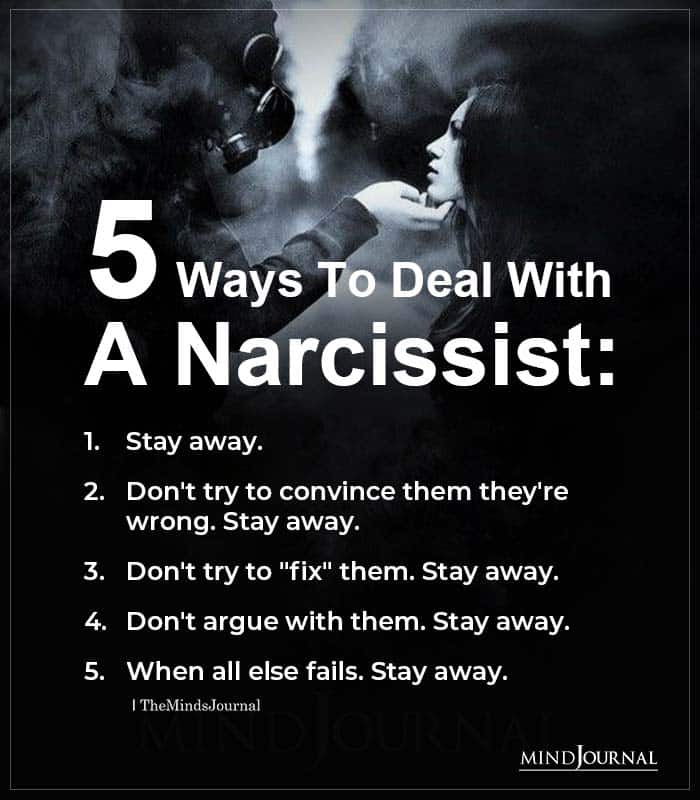 the silent treatment & ghosting, so that you can rest soundly knowing the differences between them are just as great as the contrast between you and the narc.
the silent treatment & ghosting, so that you can rest soundly knowing the differences between them are just as great as the contrast between you and the narc.
No Contact
No Contact drivers
No Contact involves severing all ties and communication channels with a narcissist (or other Cluster B Personality Disoder’d individual) who has caused you ongoing damage through abuse. It is the active prevention of interaction of any sort.
This includes all direct forms of communication with the narcissist. No receiving nor responding to any meet ups, phone calls, text messages, social media bombs, letters, emails etc. It also relates to blocking indirect dealings such as via the narcissist’s flying monkeys.
No Contact is frequently the last option for victims of narcissistic abuse who are pushed to do so as a self-preservation measure. It is about preventing exposure to any further abuse to begin healing and reclaiming a life of freedom.
The decision to go No Contact feels like the only available choice because:
- You realise the abuse has been ongoing, repeated, and unchanging for extended periods, often for years.

- This leads to recognition and acceptance that interaction of any sort will only result in more abuse.
- You simply cannot take any more pain.
- Their abuse is beyond your control. The only thing you can control, is to remove yourself from it.
No Contact outcomes
These circumstances force not only the conclusion that No Contact is necessary for survival, but also the devastating understanding that there will be no closure.
Specifically, this means that for many, when the decision is reached, there can be no goodbye, no explanation provided to the other party as to why you need to do this.
To do so, to engage in any way, only prolongs the abuse and the harm sustained.
Despite what some may suppose who have blessedly not experienced narcissistic abuse, the decision is agonising and deeply distressing. For the simple reason that notwithstanding the abuse, for many, this means walking away from someone you love. And for the empath or codependent, this is unfathomably difficult.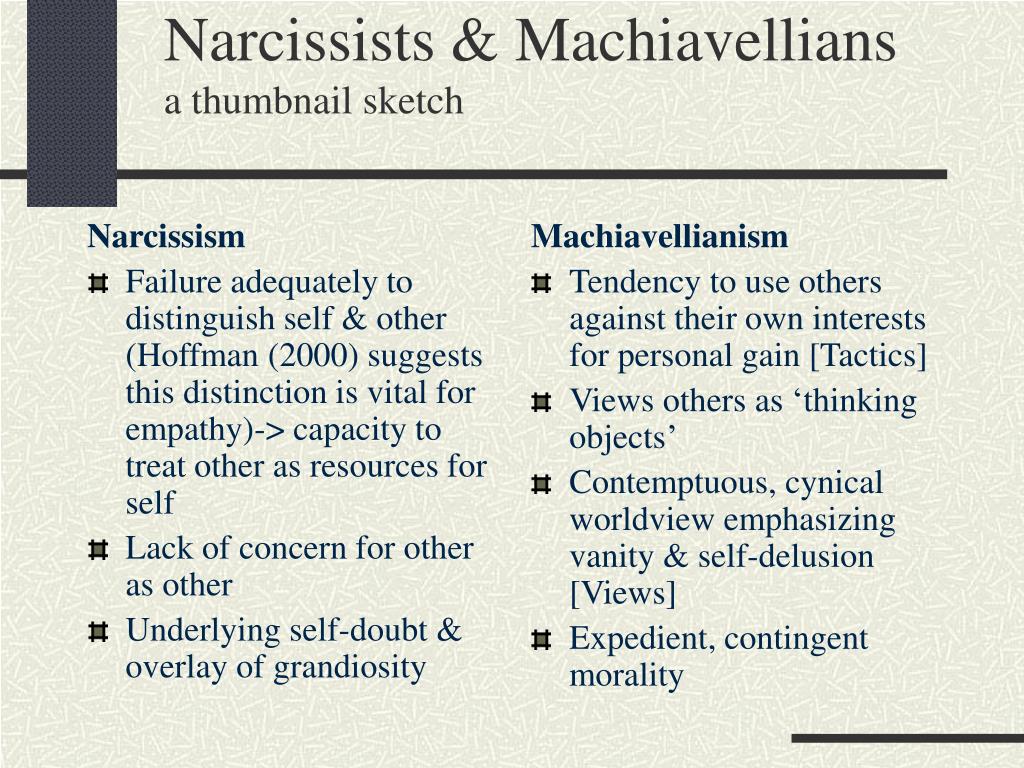
The strength and courage required is mighty, and the depth of sadness one of real grief*.
Now to the silent treatment & ghosting…
Yep, the narc’s point around No Contact, the silent treatment & ghosting all being about silence is 100% correct. But what lies beyond this gross over-simplification? Let’s drill down.
Silent treatment and ghosting drivers
Both the silent treatment and ghosting relate to withholding information to exercise power and control over you. They are indeed forms of emotional and psychological abuse.
The silent treatment occurs during the devaluation phase of the abuse cycle to punish you and to fortify trauma bonds (see Why is it so hard to leave and abusive relationship with a narcissist? for more on trauma bonds).
It is also employed to communicate your decreasing and contingent worth to the narcissist depending on your ability to meet their supply needs.
The silent treatment can run from hours, to days, to weeks, to months. However long it takes for you to learn your lesson and amp up provision of supply.
However long it takes for you to learn your lesson and amp up provision of supply.
Ghosting is a strategy used to discard you when the narc decides your supply no longer meets their needs. This approach conveys: ‘you have no value to me’.
Just as the name suggests, ghosting is a disappearing act. It is sudden & unexplained.
Your existence is in effect deleted from theirs.
To their mind, there is really no need to sully their hands with any unnecessarily unpleasant conversation if you are of no immediate nor further benefit to them. So, why bother?
Sure, you may need closure, but since when has this ever been about you?
Silent treatment and ghosting outcomes
The narcissist is well aware that refusing to communicate with you has psychological effects of cruel proportions.
The void created by the absence of information fosters crazy making ‘void filling’ repercussions within you, centred on answering the frantic question ‘what have I done wrong’?
This is clearly desirable because in going to this place you assume the responsibility for any given issue, and the narcissist continues to avoid accountability for their actions and behaviours.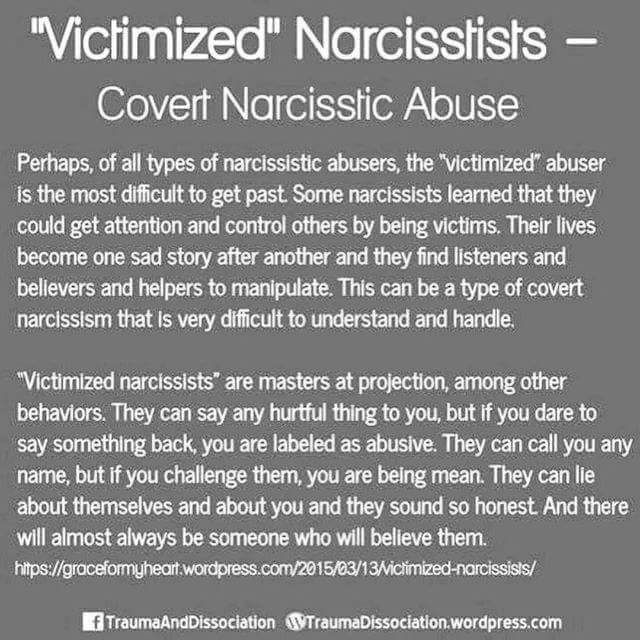
Both the silent treatment and ghosting are crushing actions designed to prevent any resolution, growth, accountability, or closure to issues.
Furthermore, the narcissist knows that you are addicted to them and the relationship (see Why narcissistic abuse and trauma bonding is so powerful for codependents for more on addiction in narcissistic relationships). They have worked hard through trauma bonding to ensure this.
They know that the pain caused from withholding means that you will not only agree to take ownership of their abuse, but you are also willing to do whatever it takes to make things OK again.
Your emotional and psychological reaction to the silent treatment and ghosting is A grade supply for the narc.
This is why they do it.
So, what
is the difference between No Contact, the silent treatment and ghosting?As with most narcissistic behaviours, the litmus test you can apply in pinpointing the difference between No Contact, the silent treatment and ghosting, is intention.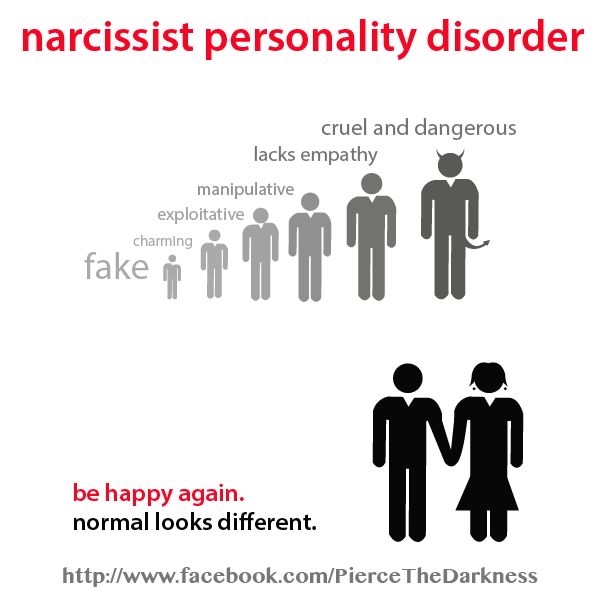
This handy little magnifying glass shines the light on getting at the truth of most narcissistic situations when doubting yourself begins to creep in.
The intent behind going No Contact vs. using the silent treatment and ghosting is all in the drivers and the outcomes. They are as starkly contrasted as night & day. Or, as you are compared to the narcissist.
One is an act of self-protection & self-preservation and the other an act of punishment & manipulation.
One is to prevent harm, the other is to cause harm.
One is to abuse and the other to stop it.
You’ve got this gorgeous one. You’ve ended it.
Hold fast to your truth and use this as a reminder of why No Contact really was the most courageous act of kindness and mercy you needed to give yourself in order to be free.
With gratitude,
Maggie x
*Note – Of course, in looking at outcomes for you in enacting No Contact, only the immediate ones are put forward in this piece.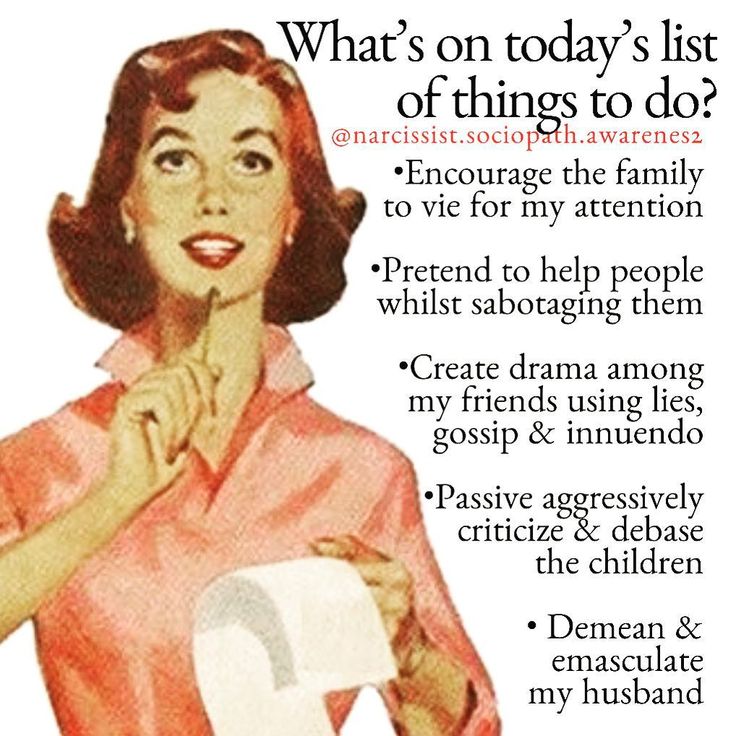 The greater and overall more significant outcome of going No Contact is that you are reclaiming your life, your freedom, and your joy. It gets easier, I promise.
The greater and overall more significant outcome of going No Contact is that you are reclaiming your life, your freedom, and your joy. It gets easier, I promise.
Narcissism, Stonewalling, & Ghosting
Is My Spouse a Narcissist?
I have learned so much about personality disorders after years of providing legal representation to clients who are attempting to extricate themselves from toxic relationships. Of course, I can also draw clarity from my own harrowing personal experiences with a narcissistic partner.
That said, I use the term “narcissism” interchangeably with other Cluster B psycho-pathologies, including narcissistic personality disorder, borderline personality disorder, psychopathy (anti-social personality disorder), and histrionic personality disorder. I believe that these Cluster B (Axis II) disorders all include some degree of unhealthy narcissism at their core, even if they are different conditions.
When a client schedules an appointment after reading my blog or being referred to my office, she will likely ask me if I believe her spouse suffers from narcissism.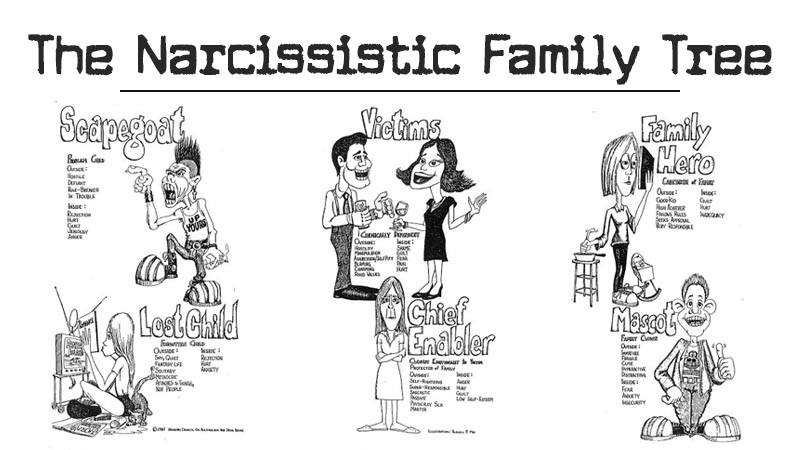 Although I lack the medical background to properly diagnose someone, chances are, if she was landed on my site, my answer just confirms her initial suspicions.
Although I lack the medical background to properly diagnose someone, chances are, if she was landed on my site, my answer just confirms her initial suspicions.
If you’ve ever had the unfortunate experience of being involved with a narcissist in a romantic capacity, you’ll try to learn everything you can to avoid the possibility of future run-ins with narcissistic people. You will do everything in your power to protect your inner child from further narcissistic abuse commonly suffered by those who have been intimately involved with narcissistic spouses.
Recognizing Covert Emotional Manipulation & Abuse
Based on my experience, many attorneys do not understand the nature of narcissistic abuse that is often very covert. Although most narcissists yell and scream during narcissistic rages and will inevitably break all boundaries by shouting in your face and calling you all kinds of disgusting names, much of their emotional abuse is more covert. Most will be masters of covert emotional manipulation and abuse by resorting to long periods of silent treatments, ghosting, or stonewalling.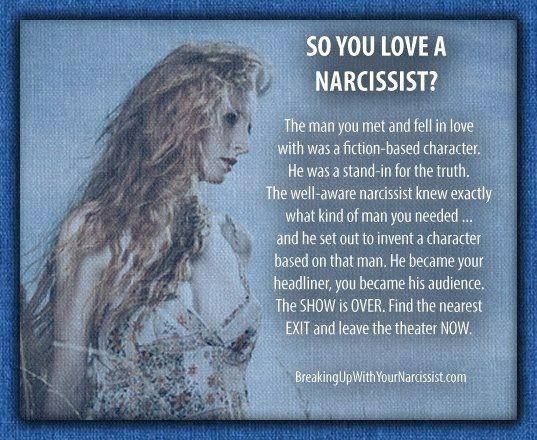 All of these are done typically to punish you for some perceived transgression.
All of these are done typically to punish you for some perceived transgression.
Narcissist Stonewalling
Stonewalling is the refusal to communicate with someone. This means that your spouse refuses to listen to you and your concerns. Stonewalling is one of the most prevalent narcissistic abuse techniques.
I want to first make sure that my readers understand that all of us have both engaged in silent treatments or have been the recipient of someone else’s silent treatments. We may sometimes ignore our children or spouses who hurt us and choose to become silent or give the cold shoulder because we feel too hurt and vulnerable. It is healthy to take a timeout periodically to control your own emotions so that you do not say anything hurtful to others, but it is unhealthy to take a silent, long timeout as a method of controlling others.
I also want to offer hope to those going through divorce with a narcissist. You will grow from this experience and never again accept stonewalling from a person you care about.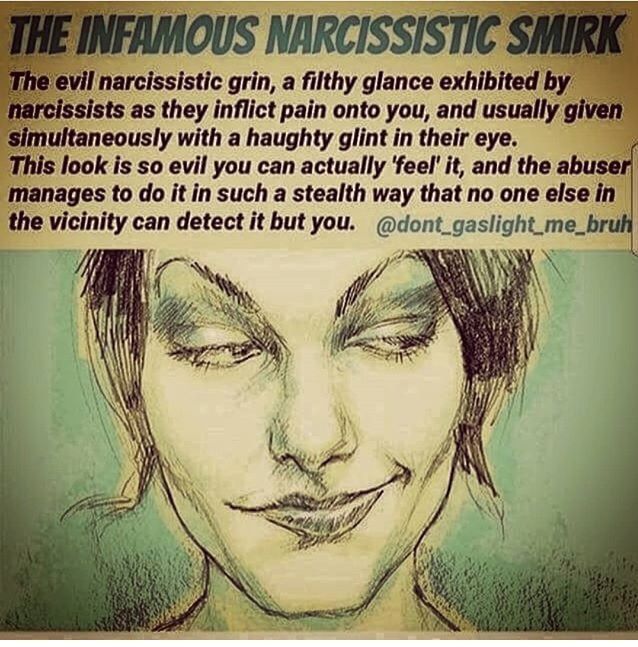 You will learn that it is commonly used by those high in narcissistic traits as a subtle form of manipulation. You will likely never again be involved with another toxic partner or part of such an addictive relationship.
You will learn that it is commonly used by those high in narcissistic traits as a subtle form of manipulation. You will likely never again be involved with another toxic partner or part of such an addictive relationship.
But why do people high in narcissistic traits employ this covert form of manipulation?
Narcissists Fear Intimacy, Vulnerability, & Abandonment
Narcissists have an unconscious fear of abandonment, but fear enmeshment or being controlled by others. For this reason, many professionals can have a hard time distinguishing between borderline personality disorder (BPD) and the quiet or vulnerable narcissist (covert or closet narcissist). Covert narcissism is just a subtype of narcissistic personality disorder. There are actually several common traits inherent to both NPD and BPD; particularly, covert narcissism.
At the core of these disorders is an intense fear of abandonment. Someone who develops the quiet type of narcissism was probably abandoned, constantly demeaned, and rejected by a primary caregiver.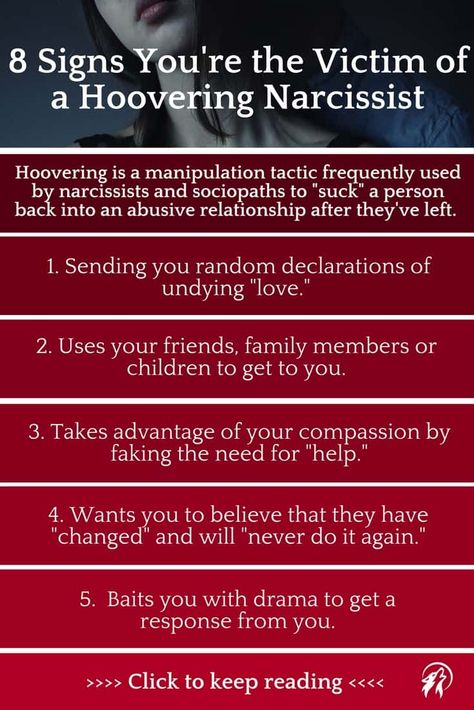 They could also have been devalued and thrown away by their mother or father. Because this fear is so buried inside the true self of someone suffering from narcissism, it almost becomes non-existent and the narcissist denies any such fear, whereas, I think, most of those with BPD are more conscious of this deep fear of abandonment. To compensate for this deep fear, the narcissist develops an outer grandiosity or machismo and denies the need to rely on others. This “false self” is what we encounter, and for the narcissist, he probably doesn’t even know that this is not the real him, and that the real “him” is a very scared and fearful child who depends on others for love.
They could also have been devalued and thrown away by their mother or father. Because this fear is so buried inside the true self of someone suffering from narcissism, it almost becomes non-existent and the narcissist denies any such fear, whereas, I think, most of those with BPD are more conscious of this deep fear of abandonment. To compensate for this deep fear, the narcissist develops an outer grandiosity or machismo and denies the need to rely on others. This “false self” is what we encounter, and for the narcissist, he probably doesn’t even know that this is not the real him, and that the real “him” is a very scared and fearful child who depends on others for love.
When a narcissist ignores you, it means that you have hurt him, but he does not want to risk exposing the scared child beneath his grandiose outward appearance. Furthermore, he is scared that telling you what’s wrong will lead to a negative consequence, such as abandonment. If he says nothing, he doesn’t risk being vulnerable or showing you that he’s hurt.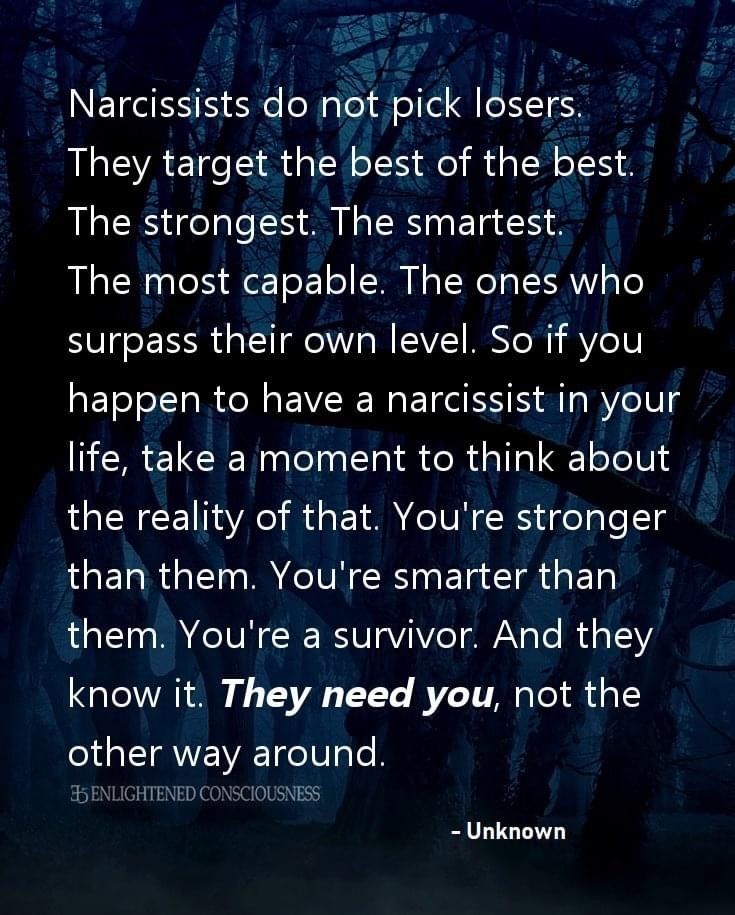
Narcissists Are Typically Lazy & Expect Everyone Else to Read Their Minds
At other times, the simple reason for a long period of silence from your narcissistic spouse is because she is too lazy to tell you what’s wrong and she is too special to have to explain anything to someone so inferior (you). She may justify this to herself by thinking, “I am not his mother, and I shouldn’t have to tell him that what he’s doing is so wrong or really hurts me.”
Narcissism Is a Shame-Based Disorder with Maladaptive Defense Mechanisms
Although it seems like most narcissists seem to be shameless, they actually feel deep shame, but their defense mechanisms protect them from truly identifying with that shame. Narcissists are also trauma victims, but their adaptive defense mechanisms are very different.
Narcissistic Injury & Taking Back Control
This is also known as “putting you back in your place.” A narcissist can use silence to control you and make you feel responsible for the perceived injury.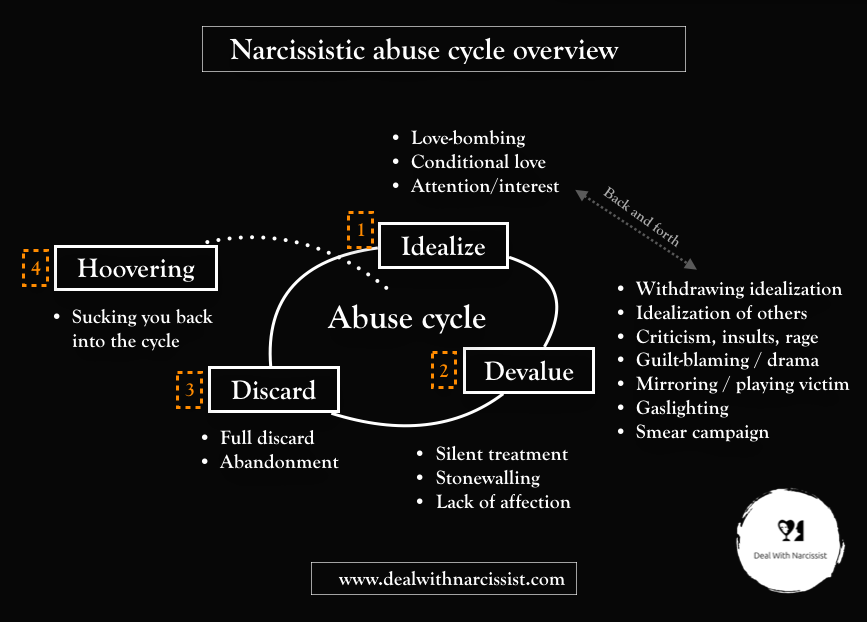 The narcissist’s unspoken message is, “No one can ever make you happy. You are never going to be pleased by anyone. All you do is nag. Shut up, or else, my silence will make you shut up. You will give me the treatment that I deserve (he doesn’t).”
The narcissist’s unspoken message is, “No one can ever make you happy. You are never going to be pleased by anyone. All you do is nag. Shut up, or else, my silence will make you shut up. You will give me the treatment that I deserve (he doesn’t).”
Being an empathetic person, you will, of course, probably ask him why he’s ignoring you, but you’ll be met with a cold stare. More silence follows. Then, you will do whatever you can to make him stop ignoring you. Often, those of us with children know that they can sense the silence, and we want them to know that they’ve done nothing wrong, so we try harder to get the narcissistic person back into our good graces. By now, you probably know that this never works as a permanent solution, and that the best thing you can do is to use the silence to really look within yourself to see why you’re holding on to something so broken.
Narcissistic Defense Mechanism of Overcompensating by Bullying
A child raised by a narcissistic parent craves that parent’s love but, unable to obtain it, attempts to do whatever it takes to receive the attention from a parent otherwise incapable of providing such attunement.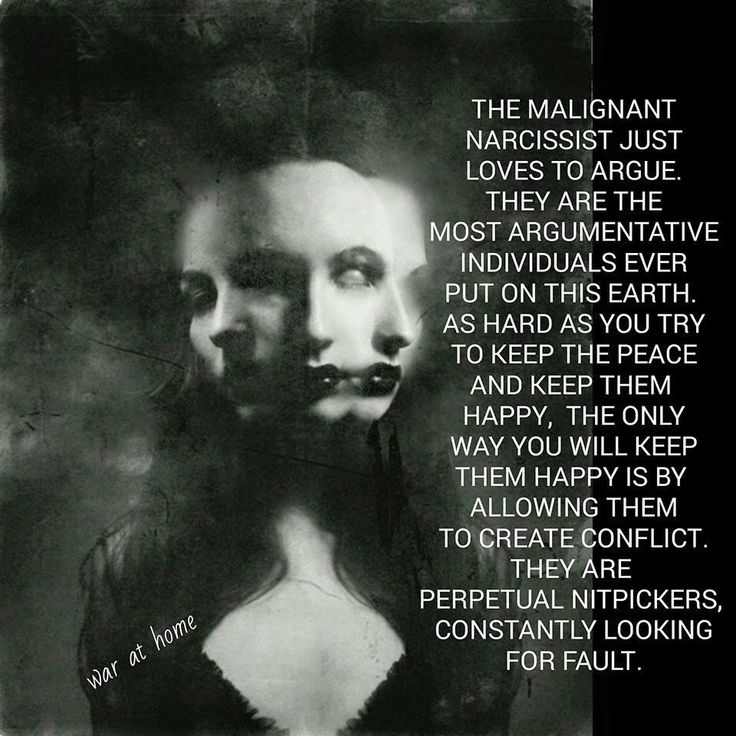 The helpless child morphs his personality, may embellish his achievements, and lie to stay out of trouble or to receive love, instead of neglect. Raised in a harsh and cold environment, the child learns that if he is a good boy, he will receive attention and praise. If he doesn’t win his soccer games, he will be chastised. This child may learn to develop narcissistic defense mechanisms to make up for his perceived shortcomings. These maladaptive behaviors may become affixed and permanent over time, and, as an adult, the narcissist may overcompensate for his feelings of deep unworthiness by bullying others or storming off when he doesn’t get what he feels he deserves.
The helpless child morphs his personality, may embellish his achievements, and lie to stay out of trouble or to receive love, instead of neglect. Raised in a harsh and cold environment, the child learns that if he is a good boy, he will receive attention and praise. If he doesn’t win his soccer games, he will be chastised. This child may learn to develop narcissistic defense mechanisms to make up for his perceived shortcomings. These maladaptive behaviors may become affixed and permanent over time, and, as an adult, the narcissist may overcompensate for his feelings of deep unworthiness by bullying others or storming off when he doesn’t get what he feels he deserves.
Narcissistic Defense Mechanism of Blaming Others to Remain Unblemished and Perfect
The traumatized child may suffer harsh physical abuse, mental abuse, and severe neglect. She may have repeatedly heard that she is worthless or otherwise defective. A psychopathic or narcissistic parent may physically abuse the child for any mistakes that she’s made.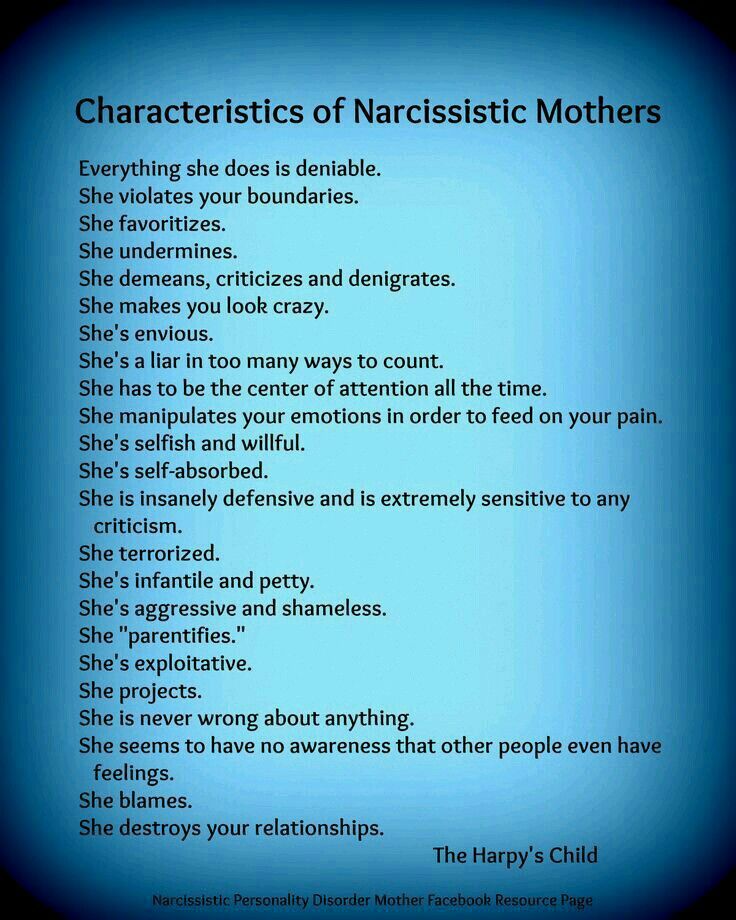 If she accidentally spills water on the floor, the abusive parent (because of his own trauma) may believe that the innocent act of spilling water by the child was meant to hurt him because she expects him to clean it up, or it triggers some form of abandonment in her father. He lashes out, smacks her, and he calls her “worthless” or a “lazy idiot.” This child’s physical and mental survival may require her to adapt a defense mechanism of believing that others are completely wrong, out to hurt her, and she will perform mental acrobatics in her young mind to make herself believe that she is truly perfect, and that others need to recognize her perfection. Their failure to recognize her perfection means that they are the defective ones.
If she accidentally spills water on the floor, the abusive parent (because of his own trauma) may believe that the innocent act of spilling water by the child was meant to hurt him because she expects him to clean it up, or it triggers some form of abandonment in her father. He lashes out, smacks her, and he calls her “worthless” or a “lazy idiot.” This child’s physical and mental survival may require her to adapt a defense mechanism of believing that others are completely wrong, out to hurt her, and she will perform mental acrobatics in her young mind to make herself believe that she is truly perfect, and that others need to recognize her perfection. Their failure to recognize her perfection means that they are the defective ones.
Splitting or Devaluing Are Common in Narcissistic Personality Disorder & Borderline Personality Disorders
Again, the lack of object constancy and permanence are at the heart of these disorders. Although those suffering from borderline personality disorder may rapidly cycle between worshipping you (idealization) to hating you (devaluation), narcissists typically do not cycle repeatedly between the extremes with the same people.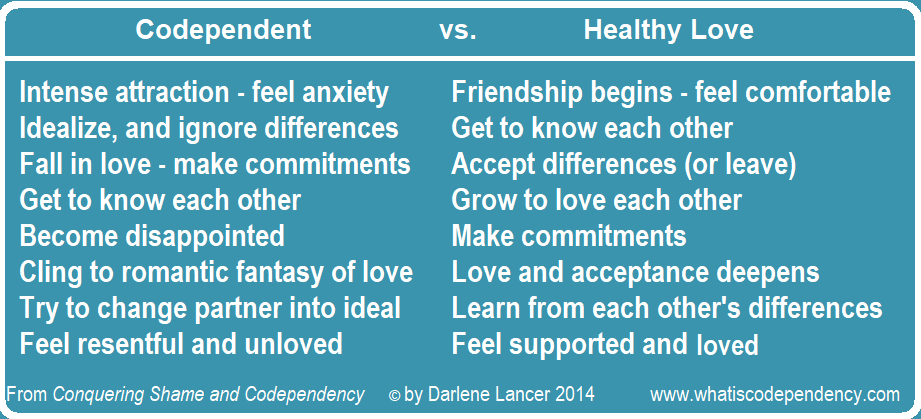 In the beginning of your relationship, you are “perfect,” and by the end, you are “defective” and “broken.” The silent treatment works to silence you like turning off a broken toy to keep the motor from running.
In the beginning of your relationship, you are “perfect,” and by the end, you are “defective” and “broken.” The silent treatment works to silence you like turning off a broken toy to keep the motor from running.
Healing
You are not disordered, so of course you will not be able to make sense of a narcissist’s discard phase. Just know that you can heal with distance, time, and therapy. Experienced trauma therapists may be able to help you process just how abnormal the situation really was. An attorney with experience in divorcing a narcissist can help you redirect the blame to the narcissist, and help you understand that although people can fall out of love, it doesn’t happen so abruptly and silently, as it does in a marriage to a narcissist.
If you’re looking for an experienced family and divorce law attorney, contact Keithley Law, PLLC,PLLC at (703) 865-7710 to schedule an initial consultation in our Fairfax law office.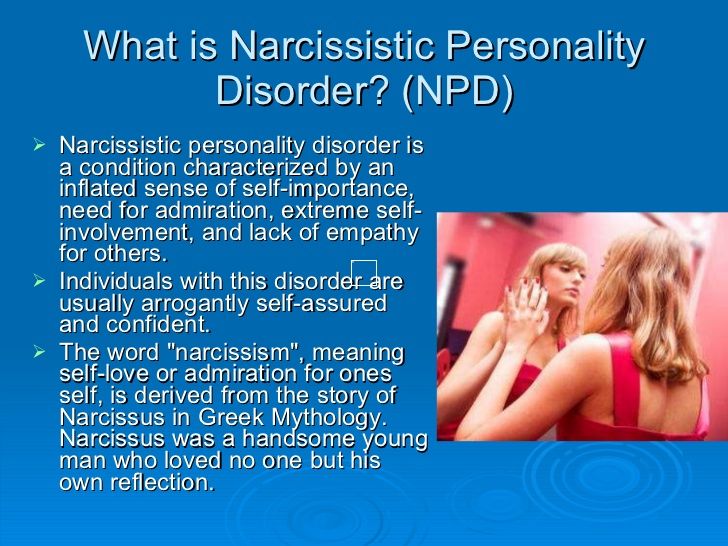
Legal Disclaimer: The information provided on “Keithleylaw.com” is strictly for educational purposes and to provide you with general educational information about Virginia laws. Since state laws are subject to change, please schedule an appointment with our office to further discuss your personal situation. This public information is neither intended to, nor will, create an attorney-client relationship. This website may be considered AN ADVERTISEMENT or Advertising Material under the Rules of Professional Conduct governing lawyers in Virginia. This web site is designed for general information only. The information presented at this site should not be construed to be formal legal advice nor the formation of a lawyer/client relationship. This website may not comply with other state ethics’ rules governing attorney advertising.
Why do ghosts always come back? – Celebrity.fm
Are the ghost boys back? Most ghosts return after a while.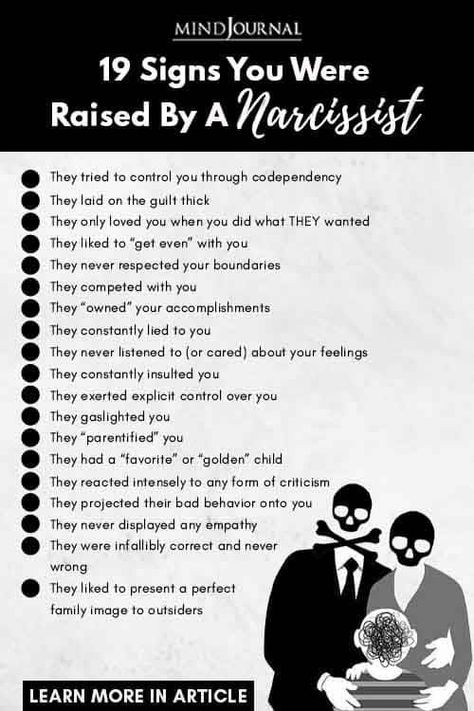 They returned because they already have the opportunity, never officially ending the relationship . So they take advantage of the fact that they can explain how to get back into your life.
They returned because they already have the opportunity, never officially ending the relationship . So they take advantage of the fact that they can explain how to get back into your life.
So why is being a ghost so painful? Ghosting carries echoes of the old rejection. It's painful because it activates—and mimics—a previous hurt or betrayal by someone we didn't just think we could trust, but who we should have trusted, often in our formative years. nine0007
Next, Are Ghosts Daffodils?
Daffodils are true ghosts; they are just shadows of people, devoid of any depth or emotion. Ghosts are painful and can make you feel worthless, but they have nothing to do with the living: ghosts have a lot to do with the dead.
How long does it take for the Ghosts to return? But many of you guys have shared your stories with me in comments and emails. From what you've told me, it takes an average of 3 to 6 months for a ghost to return. But this is just an estimate.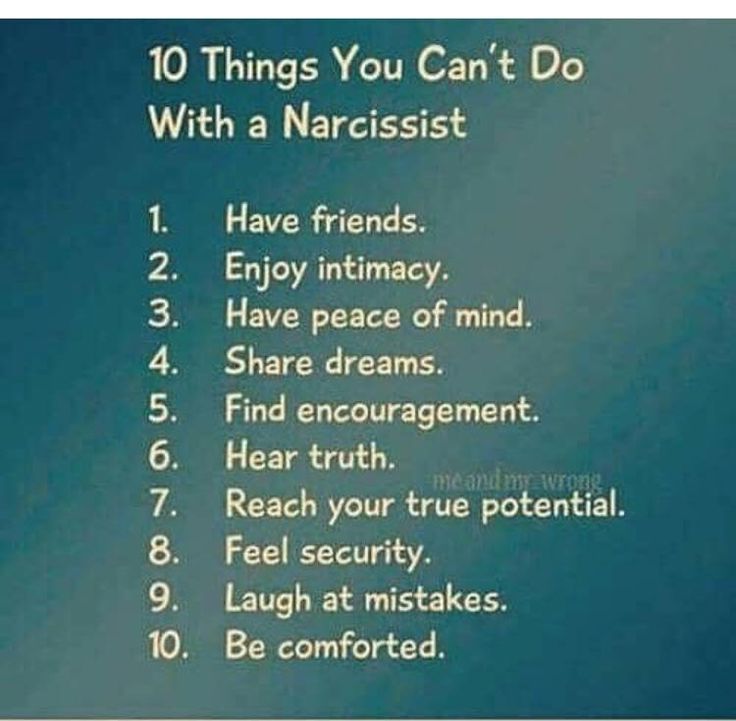 nine0007
nine0007
In this regard, how long does a lack of contact count as a halo? Although every relationship is different, three days is enough to consider yourself a ghost. Of course, everyone has emergencies or everyone can come up with a good excuse not to respond, but the fact that the situation drags on for three days or longer is enough to classify the situation as ghostly.
Contents
What is a soft halo?
Soft phantom refers to someone "liking" your last message or last comment on a post on platforms like Facebook and Instagram, where you can respond to the interaction but not actually reply or continue the conversation . So while they don't ignore you, they don't offer a sincere response either. nine0007
What does the ghost say about the person?
Ghosting is an abrupt cessation of communication with someone without explanation. This concept most often refers to romantic relationships, but can also describe disappearances from friendships and the workplace. People react to a ghost in different ways: from feelings of indifference to deep betrayal.
People react to a ghost in different ways: from feelings of indifference to deep betrayal.
What will the narcissist say to get you back?
Another strategy used by the narcissist to "get back" is to blame the other partner for the accidents over and over again. They may say, "You're holding me back," for example, when looking for consistent activity without interruption. nine0007
Is a ghost a form of gaslighting?
Definition of gaslighting: phantom in its extreme form
Extreme gating can be thought of as gaslighting, the practice of psychologically manipulating someone into questioning their own sanity or understanding of a situation. Gaslighting is psychological abuse and often goes unnoticed in a relationship.
What is narcissistic neglect?
Narcissistic wall
Stonewalling is the refusal to communicate with anyone. This means that your spouse refuses to listen to you and your concerns. Stopping is one of the most common narcissistic techniques of violence.
Stopping is one of the most common narcissistic techniques of violence.
Ghosts cowards?
If we are real, it is easier to ignore the problem until it disappears on its own than to face an unpleasant situation, but the ghost is selfish and cowardly. "While the ghost's intentions are not necessarily malicious, its behavior is ultimately selfish and childish," says Meyers. nine0007
Do daffodils return after a ghost?
Yes! They most often return after the end of the relationship, if there is still enough supply for them.
Should I summon a ghost?
But did these messages elicit a response from the ghost or offer me some kind of closure? No, of course not! And dating experts say that while it can be tempting, it's usually best to just let the ghost rest in peace. Unfortunately, the ghost is part of dating. nine0007
Will the ghost return?
If you're wondering, "Do the ghosts return months later?" simple answer: "Yes, sometimes. " These disappearing people don't have a set amount of time to stay out of reach before they decide to return. Their comeback is usually more about what they want from you rather than someone else.
" These disappearing people don't have a set amount of time to stay out of reach before they decide to return. Their comeback is usually more about what they want from you rather than someone else.
What is a micro halo?
Basically, it's very much like a normal ghost - when someone you're chatting with disappears without a trace - but instead of completely disappearing into thin air, the object of your affection just likes your message. Yes, instead of replying to your messages, the soft ghost simply “likes” everything you send. nine0007
What is passive halo?
I recently read an article about "passive fanting", where someone who is not interested in a relationship with a person still responds and shows little interest, leaving that person in constant confusion.
What to write after the ghosting?
Texts to send if you want to close
- “I feel like I'm becoming a ghost.
- "I've enjoyed getting to know you these past few weeks, but I realize our time has come to an end.
 nine0098
nine0098 - "Since you're not comfortable sharing your feelings about our deal, I'll close the door on us.
Is ghosting someone a form of gaslighting?
Definition of gaslighting: phantom in its extreme form
Extreme gating can be thought of as gaslighting, the practice of psychologically manipulating someone into questioning their own sanity or understanding of a situation. Gaslighting is psychological abuse and often goes unnoticed in a relationship. nine0007
How does the ghost feel?
Research has shown that ghosts also experience the negative effects of their actions, but with a less positive long-term impact. After geistering a partner, 65% of gasters experience anxiety, awkwardness and guilt. This can range from being afraid to face a ghost in the future to simply hurting someone's feelings.
Does a ghost hurt a ghost?
It's a common misconception that the negative effects of halos only go one way; in fact, the person who is a "ghost" can cause just as much pain as the one who is left behind.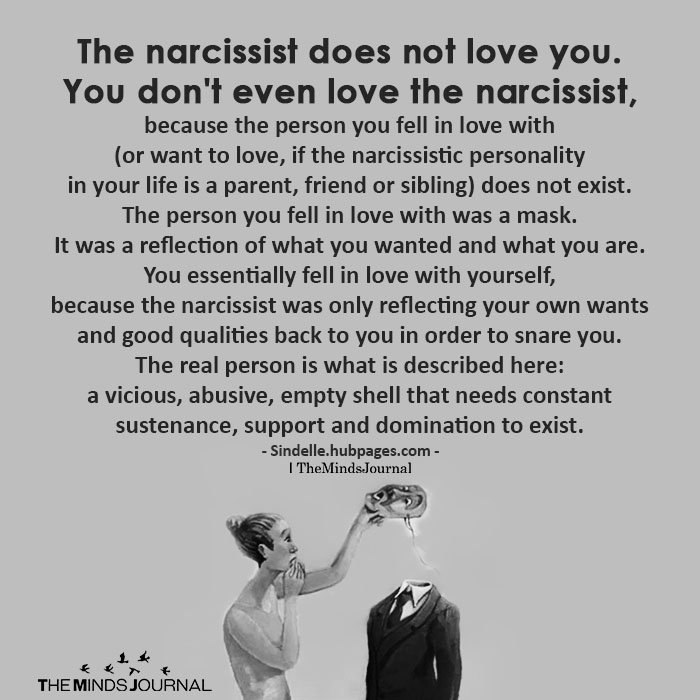 nine0007
nine0007
Do I have to post after being banned?
Overwhelmingly, all the experts we consulted recommend not texting anything after being spotted. We know! It's complicated. Sending a message is simply not worth your time and energy, especially since you have no control over the response.
How do you make someone regret being a ghost?
Ultimately, when it comes to making a guy regret stalking you, it's pretty easy. Block him, don't take revenge, don't try to reconnect. Instead, try to focus on your life, find the right person, and be truly happy in yourself. This is the "magic formula". nine0007
When does the narcissist know you've figured them out?
2. They exude manipulative behavior. When the narcissist is exposed, or when the narcissist knows that you have figured him out, he will never admit the truth, even if it is facing him. The narcissist will make several false accusations and try to justify him.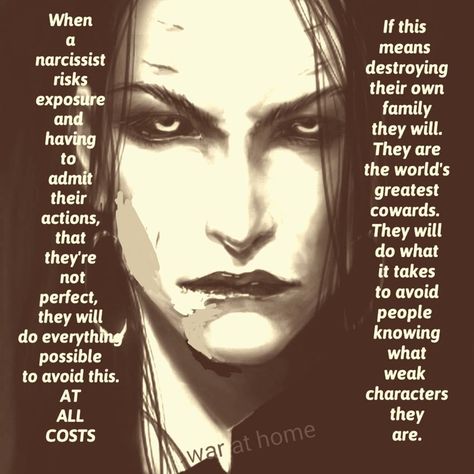
How will a narcissist hook you?
Manipulators such as narcissists can lure their victims with a tactic called love bombing. This is the stage of a relationship where they define their goal and then make her feel like the most special person in the world by showering her with compliments, love, and gifts. nine0007
Will the narcissist cry to bring you back?
Yes, daffodils can cry - plus 4 more myths debunked. Crying is one of the ways people empathize and bond with others. If you've heard the myth that narcissists (or sociopaths) never cry, you might think it makes sense.
Faceless demon or Narcissus? (Review from a reader)
Natalia from Moscow sent a review of a character from a popular cartoon, for which she has already been sent a book as a gift. Taking this opportunity, let's discuss other cartoon characters in our section.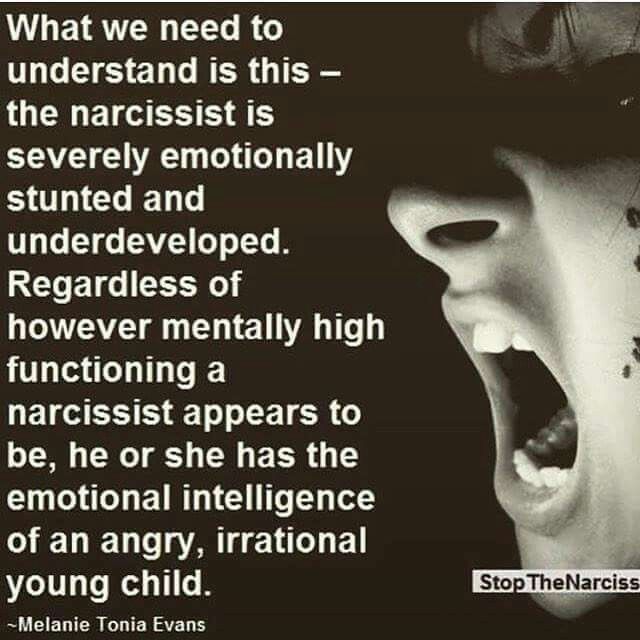
"My hero is the Faceless Demon from the cartoon "Spirited Away" by the Japanese director Miyazaki.
Many people watched the cartoon, it is often shown on TV. If you haven't seen it, I highly recommend it. It's beautiful animation, wonderful music and an interesting story.
The heroine Chihiro, a girl, enters a fairy tale world inhabited by various creatures and must save her parents, who have turned into pigs because of their greed.0007
Chihiro's situation is certainly not easy. She is still just a child. And here, in order to survive in a strange world, she has to work in the Baths - a kind of spa for ghosts. She builds relationships with other heroes, tries to learn from them and help them. The mistress of the Baths, the witch Yubaba, robs her of her name. Chihiro forgets her name. But the dragon Haku, Yubaba's assistant, reminds her and takes her under his protection.
This is an important point. Having lost our name, our essence, we lose a part of ourselves.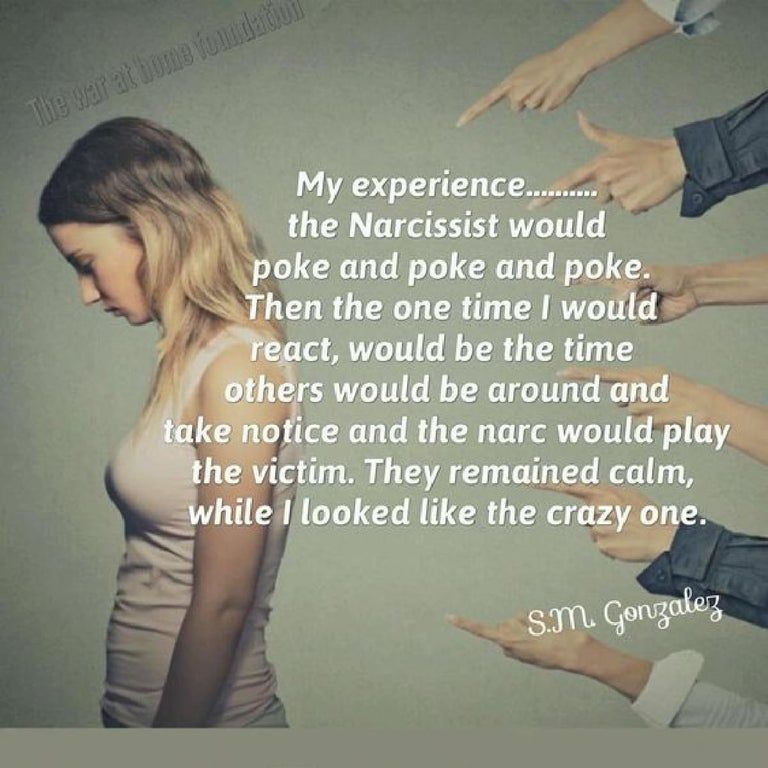 “If you forget the name, you will not find the way home,” says the dragon Haku. nine0007
“If you forget the name, you will not find the way home,” says the dragon Haku. nine0007
Thus, an inexperienced but kind and open girl finds herself in a difficult situation. But Chihiro does everything right. She saves the dragon Haku and the Lord of the River, she honestly works for Yubabu, she obeys her boss Rin and stubbornly searches for her parents.
But then the Faceless Demon suddenly appears. He follows Chihiro and finally finds her alone at the open door. He sneaks into the Baths, taking advantage of Chihiro's ignorance - she herself invites him.
In the beginning, he does not cause fear. Who is Faceless? He, like the narcissist, does not have his own “face”. There is no form. He doesn't have a name. His only desire is to devour. He is constantly hungry, he is pathetic and ... faceless. The Faceless One eats the frog and assumes its form. Just like narcissists, they adapt to their victims, but do not have a bright personality, their own spiritual life. nine0007
Another lure for the Faceless One is gold.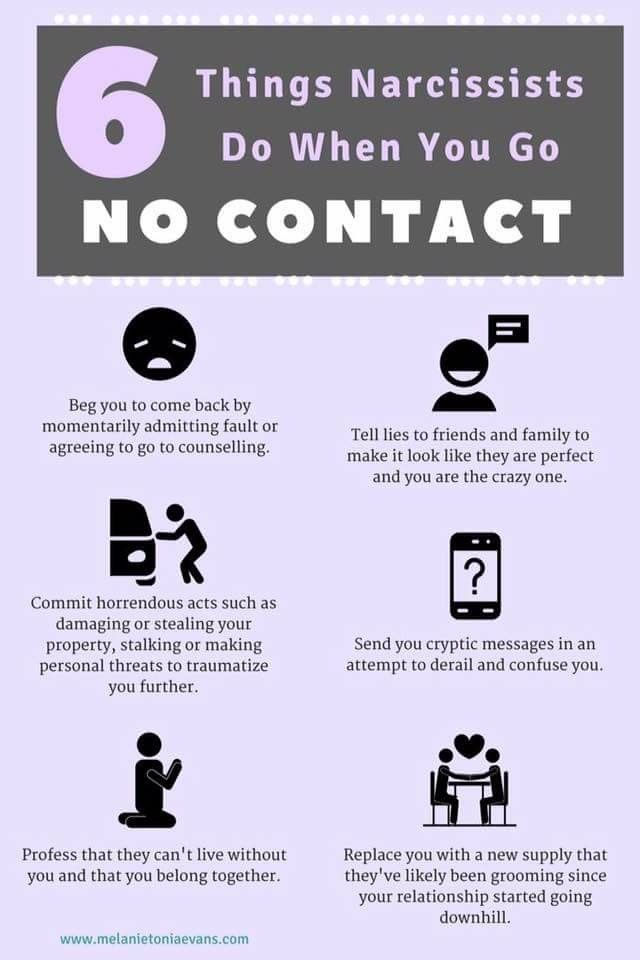 He distributes it in unlimited quantities. So, at the beginning of an acquaintance, a narcissist is ready to pour compliments, declarations of love, and sometimes money.
He distributes it in unlimited quantities. So, at the beginning of an acquaintance, a narcissist is ready to pour compliments, declarations of love, and sometimes money.
Ministers vied with each other to please a rich client for money. Having drunk on food, having destroyed everything around, Faceless looks disgusting.
Have you seen the contented smile of a narcissist after once again humiliating yourself or giving away something valuable from your soul?
The demon calls for Chihiro. He decided to give gold only to her. Apparently, she attracts him with her kindness, the fact that she is a living person. And the fact that she refuses him. She is not interested in gold. She's here for someone else. nine0007
Narcissa's refusal only provokes her. He comes up with increasingly sophisticated plans for conquest, often using lies.
And then Chihiro asks Faceless an unexpected question. "Tell me where is your home? Do you have a dad, mom…?”. She addresses him with sympathy and directness. In fact, the girl asks him: "WHO ARE YOU?". She looks to the very essence, passing by herself the external - the gleam of gold, the frightening appearance of the Faceless.
In fact, the girl asks him: "WHO ARE YOU?". She looks to the very essence, passing by herself the external - the gleam of gold, the frightening appearance of the Faceless.
But what can he say...?
The narcissist, of course, will tell us a lot of tales about himself, boast, cry, play the play “my difficult / magnificent life” to the fullest - everything to impress the victim ...
Everything is simpler in a fairy tale, and the demon is simply writhing from the child's inquisitive gaze directed at him - like a slug in the sun. He offers her gold again. But now it is obvious that this is a trap. Chihiro, so small and naive, is the only one in the whole palace who understands that evil must be fought, that it is dangerous even with a lot of money….
This is where fairy tale laws come into play. Chihiro gives the demon the River Lord's magic cake. The pie can return to its original appearance. This, by the way, is incredibly generous of Chihiro, since she planned to use the pie to save her parents.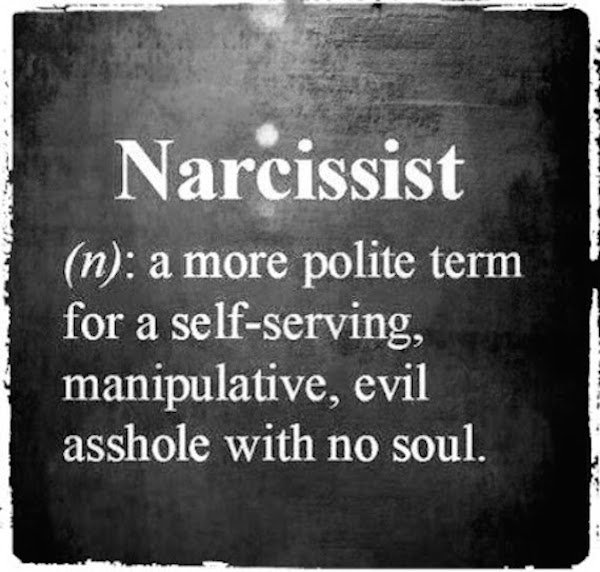 Here she thinks about saving the other employees of the Baths, her friends. nine0178
Here she thinks about saving the other employees of the Baths, her friends. nine0178
Having eaten a pie, the Faceless One begins to expel some kind of terrible slime from himself – and we see what all the gifts that we bring to narcissists turn into….
Faceless becomes enraged and chases after Chihiro. But gradually it weakens. Spits out eaten heroes. The girl lures him out of the palace away from people.
Chihiro doesn't care too much about the demon anymore and goes to Yubaba's sister to return the stolen Haku seal to her and cure him.
Faceless follows her. But now he is no longer dangerous. nine0178 Chihiro saves his parents and returns to his own world. Now she is no longer a helpless frightened child, but an independent girl. She politely says goodbye to Yubaba. All employees of the Baths greet her. Faceless stays with the witch, Yubaba's sister.
I don't think this is a very realistic end for a narcissist. But Miyazaki has no bad characters, he tries to understand everyone, everyone to find their place.